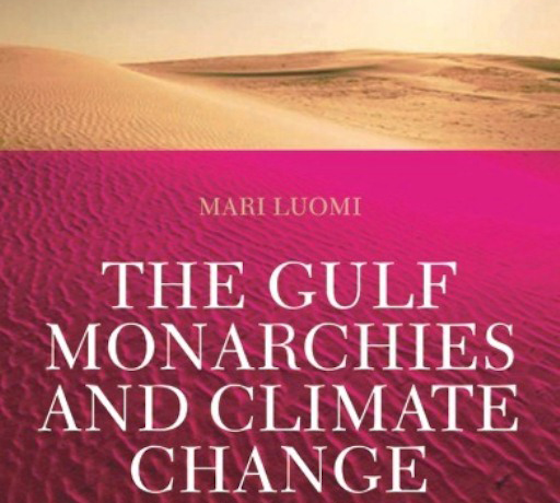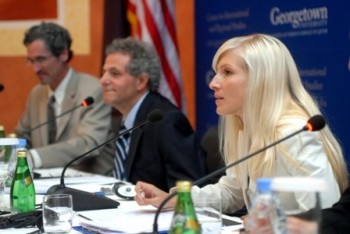Working in Qatar has clearly given the academic Mari Luomi access to lots of information about the climate change rhetoric and reality of the Gulf. It also puts her in a rather awkward position in terms of being able to voice her criticism. After interviewing Luomi for Green Prophet around a year ago, however, I was really interested in reading her forthcoming book. And I wasn’t disappointed. It’s an honest portrayal of the region with a focus on Qatar and Abu Dhabi and the complex factors at play which mean the two countries have taken rather divergent paths to dealing with climate change.
The book, which is very readable, charts Qatar and Abu Dhabi’s shift from passive players towards a somewhat more active and moderate climate policy. It explores the social contract in many of the Gulf countries based on fossil fuels (political obedience is exchanged for cheap energy and money) as well as a lack of domestic demand for a more active climate policy. This is reflected in the fact that cutting fuel subsidies, which would make conservation and a greater push toward efficiency feasible, is often seen “as an uncrossable line.” (p.91)
‘The Gulf Monarchies and Climate Change’ highlights this bind as something of a chicken or egg situation. The countries need a stronger civil society to influence the government to take more action but government discourages this through the fossil fueled social contract and then say civil society aren’t pushing it and they need more domestic support. Luomi finds that although action is being taken, the issue is still not a priority in terms of national policy. In fact, global mitigation against climate change is often seen as a bigger threat to the countries than actual climate change (due to a loss of revenue if they have to stop selling oil).
Indeed, due to the complex set of interests around the issue most of the green campaigning is very non-controversial and focuses on conservation and beach clean-ups rather than emission. Luomi focuses on various case studies such as Abu Dhabi’s nuclear programme, Masdar as well as Qatar’s strong position in terms of natural gas and the impact of this on climate policy. One of the author’s real strengths is being able to weave a story about how these countries operate socially, economically and also environmentally. Luomi also takes a rather pragmatic look at what motivates action/inaction which I think reflects the reality of the situation in the Gulf. She is also keen to point out that the region has a tiny impact in terms of emissions (historically and also today) and won’t be able to stop dangerous climate change alone.
I found the reporting on the nuclear project in the UAE particularly interesting and the book is a mine of useful data and statistics. The data coming from Qatar was particularly interesting as there is so little information on the country’s developments. The penultimate chapter looked at the Gulf monarchies role in the UNFCCC negotiations; the influence of Saudi Arabia, the growing focus on CCS, the continued influence of negotiators from the oil-sector, Bahrain and Oman’s rapidly declining oil which marks the beginning of divergent interests in the GCC, UAE cultivating an image a clean tech leader in the region and need to move away from the ‘Saudi position’. All really interesting stuff and a must read. Although some would criticise the huge a focus on energy, I think this a well-written and well-researched book on the emerging and often contradictory position Gulf nations take on climate change.
For more green book reviews see:
A No-Nonsense Guide To Climate Change by Danny Chivers
Book Review – I’m With The Bears
Earth Architect Nader Khalili’s Book: Racing Alone
‘Beacons – Stories For Our Not So Distant Future’





